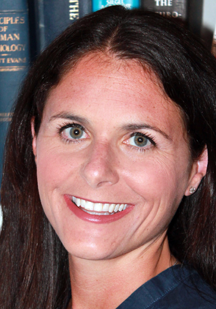Acceptance is key, but what must I accept?
Submitted on
“Grant me serenity to accept things I cannot change, courage to change things I can, and wisdom to know the difference.”
Submitted on
“Grant me serenity to accept things I cannot change, courage to change things I can, and wisdom to know the difference.”
Submitted on
“Grant me serenity to accept things I cannot change, courage to change things I can, and wisdom to know the difference.”
Submitted on
A brief post on a topic I may return to: None of the writers I follow on blogs and other social media — the ones who understand the experience of obesity in the way that I do (Jane Cartelli and Zoe Harcombe come to mind) — think the AMA was right to label obesity as a disease.
Submitted on
Note: Free video offer at end of interview
Welcome to another installment of "10 Words or Less," in which I ask brief questions of interesting people and ask for brief responses in return. Today's participant is medical director of Renascent Treatment Group in Toronto; we participated in a discussion about food addiction at the Commonwealth Club of California. The 10-words-or-less thing is an ethic, not a limit, so please, no counting. It's not so easy, and besides, let's see you do it. Name Vera Tarman
Name Vera Tarman
Residence Toronto, Ontario, Canada
Family circumstance “Married, with four pets.”
Occupation Physician
Born when and where? “1957, in Germany.”
Anything notable about the circumstances? “For the first three years of my life, I lived in a convent for children.”
A formative event from childhood “My mother died when I was 14.”
Someone who has influenced your path in life, outside family “An aunt named Inge, who was like a mother to me. She was a nurse with a strong work ethic, and was always very encouraging of me.”
Submitted on
 Welcome to another installment of “10 Words or Less,” in which I ask interesting people for brief answers to brief questions. Today’s participant is one of the world’s most accomplished researchers in food and addiction. Remember, please: No counting! “10 words” is about attitude, not addition, and besides, let’s see you do it.
Welcome to another installment of “10 Words or Less,” in which I ask interesting people for brief answers to brief questions. Today’s participant is one of the world’s most accomplished researchers in food and addiction. Remember, please: No counting! “10 words” is about attitude, not addition, and besides, let’s see you do it.
Name Nicole Avena, Ph.D.
Family status Lives in New Jersey, married, one child
Occupation Assistant Professor at University of Florida, Department of Psychiatry, and Visiting Research Associate at Princeton University, studying neuroscience, appetite, and addiction
Born when, where Point Pleasant, N.J., Oct 5, 1978
A formative event from your childhood “I was in a spelling competition in elementary school and that engendered a fondness for academic reward.”
Where’d you place? “I came in 2d.”
First paying job“Lifeguard at a yacht club.”
Something you took from that job “Aside from a nice tan each summer, I had the chance to teach several children to swim, and that taught me patience and how to negotiate.”
Someone outside your family who influenced you particularly “Bart Hoebel, who was a professor at Princeton and one of my mentors.”
Submitted on
Here's a great rundown of food addiction as it interacts with, and sometimes substitutes for, addictions that most everyone acknowledges more easily. The writer is Dr. Vera Tarman, medical director of a Toronto treatment center.
Submitted on
Over at medicaldaily.com, the writer Evan Winchester shows severe gaps in his understanding of the food experience of tens of millions of Americans in his April 22 piece, "Is Food Addiction a Real Eating Disorder?"
I was moved by his piece to offer three points of rebuttal, which I then decided to expand on and share beyond just the readers of his post. I hope the context will be sufficient...
Submitted on
Note to devious mouthpieces of Big Food ("Always with the negative waves, man."):
Something needn't the sole cause of a problem to be a cause of a problem. So when you fault any attempt to curb consumption of sugary sodas because soda isn't the sole cause of obesity, you're just obscuring the truth.
No, sugary soda is not solely responsible. The problem and its contributors are varied, confusing, and sometimes conflicting.
Submitted on
The onslaught of sugar in the American diet and its effect on our ability to sense sweetness — and other outcomes — is the subject of this speech I gave to my Toastmasters club last week. The assignment was to present a researched and sourced contention.
Please love and share!
Submitted on
I was reading a lengthy-but-completely-on-target article in the British newspaper The Telegraph on sugar dependence — boy, the Brits are much more on top of this topic than American media is — when I noticed this "top stories" box at its bottom.

Sex and food, yes, but the last entry is what moved me to share it.
"Low sugar hot fudge sauce" exemplifies what I consider some of the most pernicious threads of modern humanity: